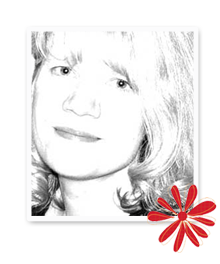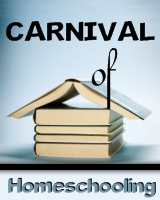A side note….have you ever noticed that when you are in the market for a truck, for instance, say a Toyota Tacoma……then that’s what you start seeing on the road? They start popping up everywhere! I felt this way when trying to get pregnant, too. I was surrounded by pregnant women, baby joggers and billboard ads for fertility specialists, stuff I hadn’t much noticed before. Jeepers. Well, now that we’ve delved into ancient Greek culture, I’m seeing vestiges of it everywhere. Architecture, names, places, ads for travel to Greece……our brains are funny sponges.
Okay – so I’ll list the materials and ideas we used for our study on Ancient Greece. UNIT STUDIES are popular because you can pull in all of the major subjects around one topic. It turns out to be a fair amount of work on my part to get everything lined up, but that’s half the challenge for me and I like that kind of thing. Unit studies do not work for everyone! You can plan to hit the library at least twice a week and you have to stay on your toes to follow where your kiddo goes (but don’t we do that anyway? This is merely a modified version of parenting!)
The Story of the World by Susan Wise Bauer and her accompanying activity guide. We read chapters 18-25: Life in Early Crete, The Early Greeks, Greece Gets Civilized Again, The Medes and the Persians, Sparta and Athens, The Greek Gods, The Wars of the Greeks and Alexander the Great. Then the Greeks started to get sloppy, paying too much attention to arguing amongst themselves, and they eventually fell to the mighty Roman Empire. We followed along in the activity guide and filled out the blackline maps, etc.
Max started a series of books called Percy and the Olympians by Rick Riordan. He was reading these at bedtime over the summer, so a study of ancient Greece seemed logical because he was already interested. The first in the series is called The Lightning Thief; it’s about a boy who is the half mortal son of Poseidon the sea god. About his adventures fighting mythological creatures and trying to live life as a not-so-normal mortal. Max's dad is reading it, too. He is one book ahead of Max.
*After Max finishes a book that he's read himself, I have him fill out a two-page book report of sorts that I typed up. It’s called, “Hey, Mom, Look What I Just Read!” and it’s full of silly ways to complete sentences, convince others to read the book, character descriptions, short descriptive paragraphs. It gets him writing and he barely notices that he’s writing! This way, too, we can file these away and he can look back at them to remember what he read. If you’re interested in seeing it, leave a comment and I could email it to you. I only use it after he’s finished a big chapter book that he read by himself – kind of a sense of accomplishment thing.
All SPELLING AND VOCABULARY words were pulled out of Greek culture and mythology. I started with ten words a week and gradually kept adding more until I found his comfort level. We worked on the words once a day over the week by spelling them out on a white board, by playing catch and taking turns saying a letter, etc. and on Fridays I gave him a spelling quiz and a crossword puzzle to help him with definitions. Use Puzzle Maker to make up crosswords – it’s quick and easy at http://www.puzzle-maker.com/CW/ These were the words we used: Mediterranean Sea, myth, flummox, labyrinth, Zeus, Minoan, Minotaur, navy, Aegean Sea, Athens, altar, barbarians, vain, Acropolis, trireme, pentathlon, cyclops, Poseidon, Odysseus, Agora, tantalize, chariot, Aphrodite, The Iliad, citizen, democracy, Plato, tyrant, philosophy, government, marathon, conquer, column, architecture, peninsula, tragedy and comedy.
D'Aulaires' Book of Greek Myths. Cant's say enough about this book. It's one you'll want to keep. It's large and colorful and contains most of the Greek myths. Max loved it!
Greek Sculpture: The Late Classical Period by John Boardman. More of a grownup book, but great pictures of Greek art and Greek style.
Greece by Christine Petersen. Modern day Greece and what the people are like, where they live, how they spend their time.
Greek Town: Metropolis by John Malam. Drawings of how ancient greek cities looked.
National Geographic’s Ancient Greece: Archaeology. Good info for learning how scientists find out so much about ancient civilizations.
Blackships Before Troy by Rosemary Sutcliff. Wow. Good book. However, I must tell you that we have yet to get through all of it as it’s lengthy and my attention was waning. It’s a rewrite of Homer’s Iliad in story form with big pictures – helps you get a good grasp of the Trojan War.
That reminds me! A couple of summers ago we read Tales from the Odyssey by Mary Pope Osborne, the same author who writes the Magic Treehouse series. This is fantastic reading about the wayward travels of Odysseus. It’s in fairly easy chapter book style. The first book is called The One-Eyed Giant.
The Greeks: Crafts from the Past by Gillian Chapman. Used this one to pour and paint a small Greek fresco out of non-toxic plaster from Hobby Lobby.
Hercules: The Man, the Myth, the Hero by Kathryn Lasky. Who doesn’t want to learn about Herc and his twelve labors?
The Trojan Horse by Albert Lorenz. Designed in a fun “play” format with quips from the gods and action from the mortals. I thought it was clever. Cleverness needs to be applauded!!
Archimedes and the Door of Science by Jeanne Bendick. Here is a place where science entered in a BIG way. It’s a look at Archimedes and his contributions in math and physics in story format. It’s also a perfect example of a ‘living book’ approach to teaching. This, too, however, we have not finished up. This one I’m going to stretch out as it’s a lot of information to pack into a ten-year old brain.
The Librarian Who Measured the Earth also by Kathryn Lasky. The story of Eratosthenes who figured out a way to measure the circumference of the Earth with just his brain, the sun’s shadow, and some people who were willing to walk a bit and take more measurements. I pre-read this and thought Max would not be interested in it, so skipped it. Included it here for reference.
What’s Your Angle, Pythagorus? by Julie Ellis. A squared plus B squared equals C squared figured out by a young Greek boy.
Following are some INTERNET SOURCES AND COMPUTER GAMES that proved worthwhile:
I can’t fathom what it must have been like to have been raised in Sparta. Since I didn’t think the movie 300 was appropriate to show Max (great movie, by the way), I pulled up this site so he could play a game. He had to pretend he was a young Spartan boy being trained in the agoge, which is a process of preparation for military life. The game is at http://www.ancientgreece.co.uk/sparta/challenge/cha_set.html.
Mrdonn.org has proved to be useful for many subjects. I’m using it now as we learn about prehistoric man, as well as when we learned about Greek culture. There are a gazillion links and tangents, so figure out where you want to go beforehand. The link is at http://www.mrdonn.org/
The making of Athenian pottery - you get to see how the clay was made, how it was painted and fired. Interesting. http://www.getty.edu/art/gettyguide/videoDetails?cat=2&segid=373
OTHER MISCELLANEOUS RESOURCES used were:
Visions of Greece, a DVD showcasing an aerial tour of modern Greece. It incorporated history, Greek music and mythology, too. You can probably find it at the library. http://www.amazon.com/Visions-Greece/dp/B00028G6B2
Age of Mythology. Of course this was a hit! It’s a computer or video game wherein you can learn real-time strategy, battle training, organizational skills, etc. Historically accurate and stimulating. Thanks, Kari, for this recommendation! It’s been around for awhile (2002), so it was cheap at our local Staples ($9.99, I think). Age of Empires is a similar game that has a broader scope. http://en.wikipedia.org/wiki/Age_of_Mythology
The Clash of the Titans. Max and Gary watched this about three times. It’s an old movie (1981) that stars Harry Hamlin. You can get it at Netflix if you can’t find it anywhere else locally.
Emeril’s There’s a Chef in My World! We made pastitisio (a Greek casserole with noodles and beef), and Max's dad braved his way through the baklava recipe, which is by far the best one I’ve ever tasted. It was really hard to stay away from. Lots of other nummy recipes, too and it’s available used on Amazon starting around $0.75.

One day we followed a tangent and decided to build the original stadium in Olympia using Legos and then take pictures of it! Max built Zeus on his throne, the stadium gates, chariot races, the marathon (using aliens because those where the only figures with long legs. And they were green), the pancreation where somebody broke a finger, and the discus and javelin event. Then he used the camera and took his own pics of it. Above you’ll see the discus and javelin competitors, somebody breaking a finger in the pancreation, and a charioteer.
Another fun activity involved Max writing a short letter to his cousin Kate in Texas and he wrote a short sentence using the Greek alphabet. He sent the alphabet along to Kate so she could decode it.
And last, we utilized parts of a workbook by Scholastic called Greek Mythology Activities. It contains games, puzzles, interviews and other stuff. It helped Max keep all those Greek gods and goddesses sorted out. I'm still confused.
At this point we grew rather tired of Ancient Greece and decided to move on. We were also working on separate math concepts and some handwriting, so Max definitely had a full plate. But it didn’t feel like that. We had a lot of fun working through these days and following his interests and I’m certain we only scratched the bare surface of all there is to know about Ancient Greece! I don’t feel like we got much on Greek philosophers, but maybe he’s not old enough to appreciate them yet. We can bring them up again at a later time and find out what Socrates had to say.







































Hi, what a great site :) I would really love to see an example of how you get Max to do his book reports. Would you please email me a copy? cathy at australiandoulas.com.au
ReplyDeleteThanks so much!!!!
Your blog looks like an amazing resource! I'm surely bookmarking it for future reference.
ReplyDeleteCan you email me your book report paper please?
sakidatta_shiro@hotmail.com
Thank you!
keep up the good work~
Yes - Arisah - I'll try to find it on my laptop for you and send it on its way. Hope you find it useful.
ReplyDelete